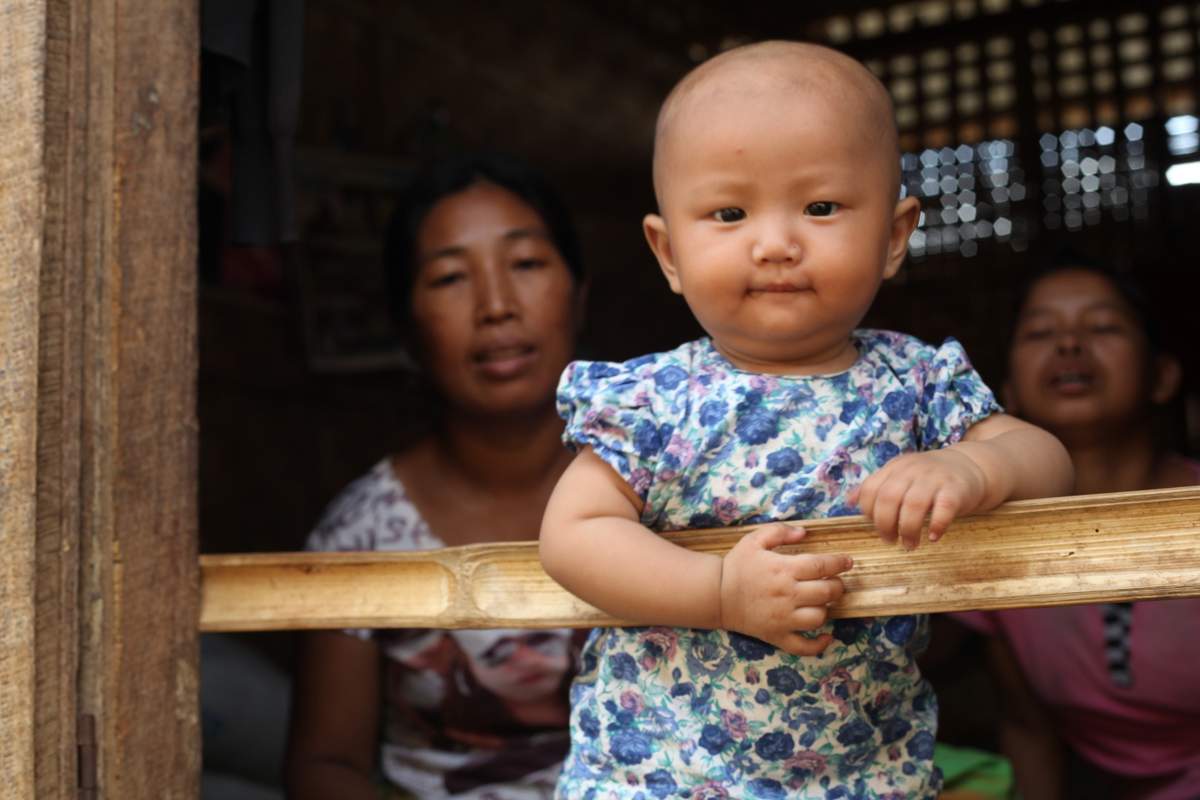As State Counsellor Aung San Suu Kyi prepares to go to Washington this week for a highly anticipated visit, members of the ethnic Kachin diaspora are highlighting the ongoing conflict in Burma’s north to call for continued sanctions against the country’s armed forces and businessmen close to the former military regime.
The visit, which is expected to bring calls from US businesses for a further easing of sanction against the Southeast Asian country, will be Suu Kyi’s first to the United States since her National League for Democracy (NLD) government took power earlier this year.
Despite the transition to a democratically elected government, Burmese armed forces offensives have continued against the Kachin Independence Organization (KIO), Burma’s second-strongest ethnic armed group and a non-signatory to last year’s Nationwide Ceasefire Agreement.
Since the collapse of a 17-year ceasefire in June 2011, the government army’s push against the KIO has displaced more than 100,000 Kachin civilians, most of whom remain in IDP camps in Kachin and northern Shan states.
Rights groups, including the Asian Human Rights Commission and Human Rights Watch, have also documented incidents where army units are alleged to have carried out serious abuses against Kachin civilians, including forced disappearances, sexual violence, and summary executions, during its campaign against the KIO.
“[We] sincerely would like to urge the United States to keep the sanctions intact until there is compelling evidence that the Tatmadaw [Burmese armed forces] complies with international human rights standards, adheres to democratic norms, reaches agreeable terms with the armed ethnic organisations, and is placed under the oversight of the elected civilian government,” reads an open letter sent on Tuesday to US President Barack Obama by the Kachin Alliance, a Washington, DC-based organisation formed by Kachin living in America, most of whom arrived as refugees.
It is expected that the US government will use Suu Kyi’s visit as an opportunity to further dilute existing targeted sanctions and trade restrictions in place against the military and cronies of the former military regime.
In December of last year, following pressure from two banking lobby groups, the Obama administration lifted rules blocking US firms from trading with Burma via a port in Rangoon owned by Asia World, a firm headed by Steven Law, who the US government had previously described as being key a player in his late father Lo Hsing Han’s “drug empire”.
In May of this year, the Obama administration removed a number of Burmese state-owned banks and other firms from the sanctions list.
Another prominent Kachin group headquartered in London, the Kachin National Organization (KNO), also issued a statement on Tuesday questioning Suu Kyi’s commitment to refugees ahead of her expected participation in a UN refugee summit.
“I don’t know what kind of speech she would be able to give at the summit regarding the Kachin and other ethnic refugees since she has not been to any of the Kachin refugee camps. I would rather like her to come and visit Kachin IDP camps to see our desperate situation and make sure all refugees return to home safely soon,” said the KNO’s president, Bawmwang La Raw.
Reports of army units shelling KIO positions near the group’s Laiza headquarters last month, some of which landed very close to refugee camps in the area, are a further sign that the military is not serious about peace, says the KNO, which also has chapters in Japan, India and Thailand.
“We cannot find mutual trust with the NLD or any Burmese government if the Burmese army is attacking our positions. They must withdraw completely from our Kachinland before any political negotiations take place,” said Bawmwang La Raw.
In sharp contrast to the Kachin groups’ scathing criticism of Burma’s armed forces, there have been calls from some in the US for increased American cooperation with Burma’s military.
[related]
“The US government should step up high-level contacts between senior US and Myanmar [Burmese] military officers, and expand courses offered to Myanmar officers in such areas as civil-military relations, handling refugees, counterterrorism, and English-language training,” said a report published earlier this year by the Washington-based Center for Strategic and International Studies.
This is a view shared by William C. Dickey, a former US defense attache to Burma who since his recent retirement has publicly advocated for the Pentagon to play a greater role Burma’s transition.
“With its high standards and long democratic tradition, the US military is well suited to help in the transformation process, to help Myanmar’s military understand its proper role in a democratic society,” said Dickey in a recent op-ed.



